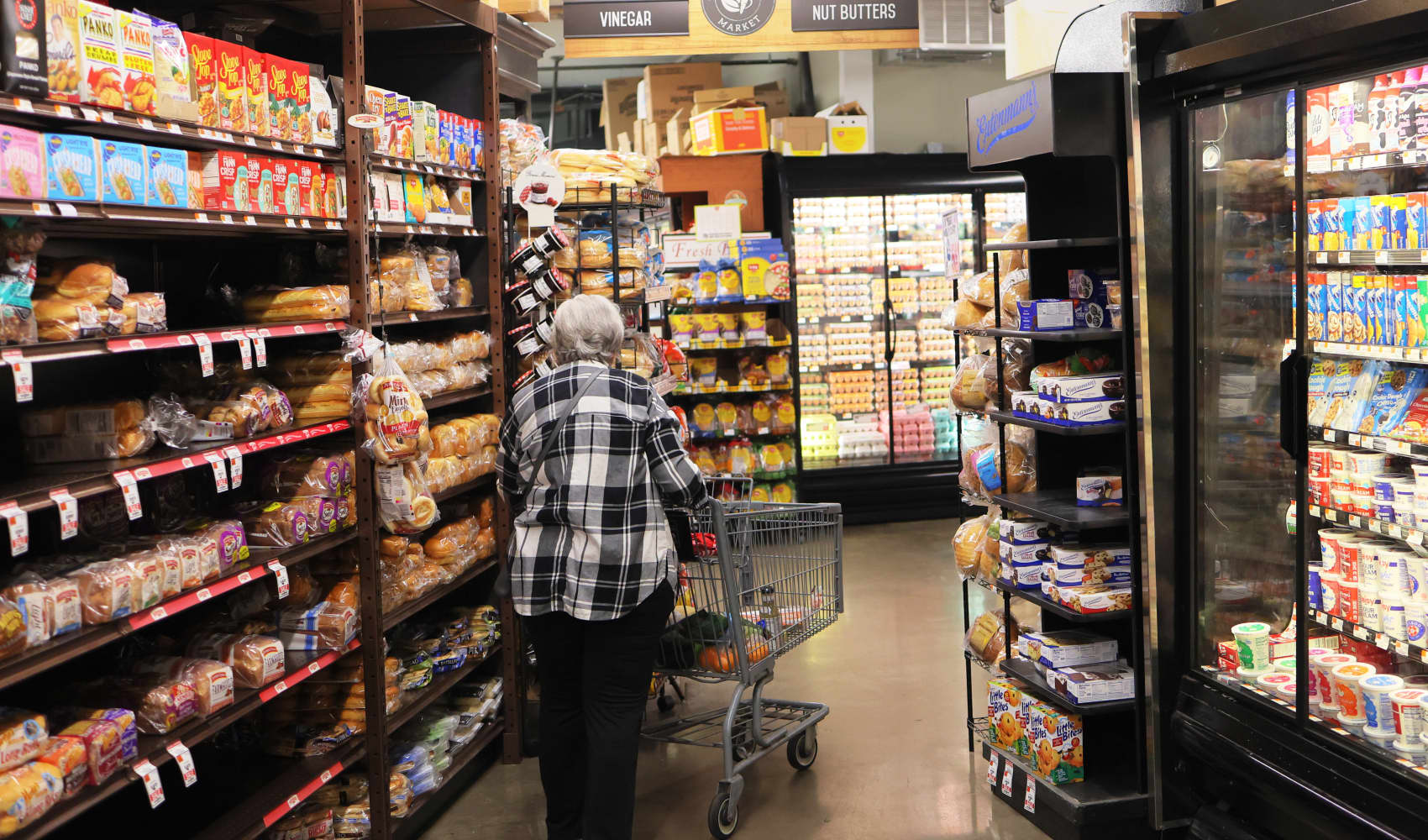Have you, or your wallet, been missing the soothing comfort of the Before Times in recent months?
Aside from a blissful lack of novel coronaviruses and major acts of political violence, 2019 -- while imperfect -- was also a much more precedented time when it came to the economy. Your wallet already knows this, but those hefty grocery bills aren't a figment of your imagination.
For example, in December 2019, the cost of a dozen large, grade A eggs was about $1.53 on average in any given U.S. city. In December 2023, the same dozen eggs cost $2.50 on average. (And that full-dollar increase doesn't even mention the bird-flu-related price spike up to nearly $5 for a dozen eggs, on average, at the beginning of last year.)
We're making it easier for you to find stories that matter with our new newsletter — The 4Front. Sign up here and get news that is important for you to your inbox.
Those price increases add up to a big difference over time.
Looking at the average price of eggs over the course of 2019 compared to 2023 drives home the literal cost. If you buy two cartons of eggs a month, every month, for a year, you spent roughly $33.60 more in 2023 than you did four years before. Just on eggs.
Here's another example: A pound of roast coffee grounds bought in any U.S. city set you back about $4 in December 2019. But four years later, it cost about $6.09.
Two bags of coffee per month, every month, for a year? There's some data missing for the early months of 2019, but you likely spent around $48.60 more in 2023 than you did in 2019.
This is all according to data from the U.S. Bureau of Labor Statistics. The bureau compiles retail, food and energy prices in U.S. cities over the course of a month to get an average price each month of the year for different staple goods. Their database gives an idea of how much prices increase from year to year overall.
And the graph of average prices over the past 10 years for most basic consumer goods — gas, milk, bread, sugar, chicken — goes from slightly-above-flat to a 45-degree-angle increase all around the same time: 2020.
The rise in prices in 2022 and 2023 means your dollar doesn't go as far now.
Here's the good news: Inflation IS slowing.
But with so many expenses increasing, it's hard to take a victory lap heralding that good news. In fact, it's hard to believe that the economy is in good shape at all, for some.
Why are prices still high?
The short answer: A slowdown in inflation is different than prices simply going down. That's called deflation.
Inflation is not the same as a one-time price spike. Inflation means "broad-based increases, rather than kind of one-off jumps based on supply and demand," said Sarah Foster, a researcher covering the U.S. economy and the Federal Reserve for Bankrate.
"I like to equate it as taking a pay cut," Foster said. One expense increasing isn't inflation on its own — but if gas, groceries, housing and subscription costs all creep up, it's a different story.
There are a lot of reasons for inflation-sparked price increases. The price of something might go up if that commodity gets more expensive to make or provide — for example, if a war in Europe's biggest grain-producing country makes it difficult to export grain to the rest of the world.
It could also go up if the seller realizes people have more money to spend than they used to and thinks they could make a bigger profit. (There's been some debate about how many recent price increases are actually due to companies raking in profits under the guise of rising overhead costs. Learn more about that here.)
Basically, inflation just tends to happen as time goes on, for one reason or another, when you have an economy based on continuous growth. It's not inherently bad or concerning for the economy — as long as wages keep pace. (Learn more about that here.)
In fact, Foster said, "a little bit of inflation is actually better than no inflation at all." Learn more about why here.
Why can't prices just go back down?
The slowing of inflation — disinflation — means prices are rising more slowly. Those U.S. Bureau of Labor Statistics graphs that all show increases around the beginning of the pandemic often show that steep 45-degree slope lowering in mid-2022.
The rate that prices are going up is not as steep as it was when the pandemic began. We've avoided runaway inflation, but that's different from what many people actually want to happen: deflation.
Deflation does happen occasionally. It's actually happening in a few sectors of the U.S. economy as of February 2024, as the wild price spikes that took place during the pandemic start to normalize again. Physical goods that got more expensive due to those infamous supply chain issues -- appliances, furniture, gas, eggs -- have gotten a bit cheaper.
But unfortunately for your budget, deflation is typically bad for the economy.
"Deflation is really one of those kind of economic boogeymen," Foster said. "I think a lot of economists would consider deflation to be even worse than inflation, because it can actually interrupt the bargaining power, like we were talking about earlier for workers."
The short explanation: When there's a chance something could be cheaper later, buyers are more likely to wait to spend their money. It's the same reason you probably don't buy all your holiday gifts the Thursday before Thanksgiving: Why buy something for $20 now, when it's likely to drop to $10 in a week?
If too many people stop spending money while they wait for prices to drop, the economy grinds to a halt instead of growing — which makes the money sad, and could lead to a crash.
"Deflation, economists... they would not really look kindly on falling prices, and actually, prices are far unlikely to go back to those pre-pandemic levels," Foster said.
So, while inflation has indeed slowed since 2021, we're probably not going back to 2019 prices. Those prices have gone the way of the dinosaurs... and the way of those deeply appealing, oft-viral prices for prefabricated Sears homes in the 1920s.
If hearkening back to the grocery bills and home prices of the past has left you wondering how on earth inflation could be a good thing, you can read more here.
News4's Digital Managing Editor Carissa DiMargo, Digital Content Producer Sophia Barnes and Consumer Reporter Susan Hogan contributed to this report.




